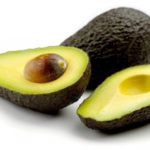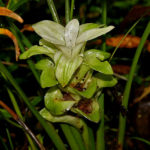One of my favorite medicinal herbs. It’s delicious as a spice or you can just use the capsule or extract. Mix a little bit into you’re favorite night cream to take advantage of it’s anti aging benefits for your skin.
 From Wikipedia
From Wikipedia
Turmeric grows wild in the forests of South and Southeast Asia. It is one of the key ingredients in many Asian dishes. Indian traditional medicine, called Ayurveda, has recommended turmeric in food for its potential medicinal value, which is a topic of active research. Its use as a coloring agent is not of primary value in South Asian cuisine.
Phytochemicals found in turmeric have been investigated in preliminary research for their potential effects on diseases, such as cancer, Alzheimer’s disease, arthritis, diabetes and other clinical disorders. As an example of such basic research, turmeric reduced the severity of pancreatitis-associated lung injury in mice.
According to one report, research activity into curcumin and turmeric is increasing. The U.S. National Institutes of Health currently has registered 71 clinical trials completed or underway to study use of dietary curcumin for a variety of clinical disorders (dated September 2012).
In a post by Mike Barrett :
Research highlighting turmeric’s powerful health-boosting properties just seems to never cease, with some recent research showing yet again that the super spice can help to prevent diabetes risk thanks to the spice’s active compound curcumin. What’s more, the compound helps to prevent diabetes among those with prediabetes – indicated that extremely high blood sugar levels that could ultimately result in type 2 diabetes. Without a doubt, there is a clear connection between turmeric and diabetes.
Turmeric and Diabetes – Curcumin in Turmeric Fights Diabetes Risk, Even for those with Prediabetes
Published in the journal Diabetes Care, the study involved 240 Thai adults with prediabetes. The participants were divided into 2 groups, with one group taking curcumin capsules containing 250 milligrams of curcuminoids, while the other was given a placebo. After a 9 month period, it was found that 19 individuals of the 116-person placebo group developed type 2 diabetes, while none of the participants of the 199-person curcumin group developed the disease.
Source: Natural Society














